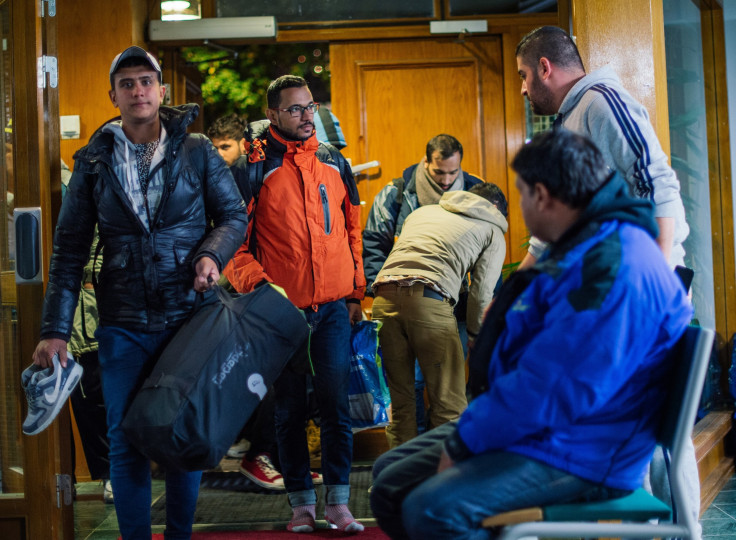European Refugee Crisis Update: Sweden Running Out Of Beds For Asylum Seekers, Minister Says

The European refugee crisis has hit Sweden so hard that the country has nearly exhausted its supply of beds, the government claimed this week. Migration Minister Morgan Johansson said at a news conference Thursday that Sweden couldn't guarantee that all of the migrants fleeing conflict in the Middle East would have a place to rest their heads once they arrived, the Local reported.
"We are in in a very dramatic situation," Johansson said, adding that the flow of refugees declined last week but then spiked again. "Those coming to our borders may well be greeted by the news that we can not arrange accommodation. They may then decide to either arrange accommodation on their own or go back to Germany or Denmark."
The Swedish Migration Agency said last month that the nation could see about 190,000 people -- 33,000 of whom are children traveling alone -- seeking asylum there by the end of the year. The agency estimated that caring for the refugees would cost about $8.4 billion through 2017, BBC News reported. Swedish Prime Minister Stefan Löfven has said separately that the country is "approaching the limit of our reception capacity" and sent a letter to the European Commission this week requesting that other countries take more asylum-seekers.
Svenska Dagbladet reported Finance Minister Magdalena Andersson appeared to back Johansson's position Friday. She recommended that refugees think carefully about where they're going, saying: "If you are in Germany and have a roof over your head, it is perhaps safer to stay there than to come to Sweden and risk not getting a roof over your head," Andersson said.
But Johansson's comments sparked criticism from Danish Immigration and Integration Minister Inger Støjberg, who said the Swedes were responsible for getting themselves into the situation. "Sweden has pursued a very lenient immigration policy for years," Ffyens stiftstidende reported Støjberg said. "I have a clear expectation that the Swedes, of course, will deal with the asylum applications they receive, just as we do in Denmark."
© Copyright IBTimes 2025. All rights reserved.






















